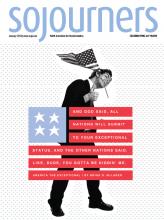READING KAZIM ALI, one is reminded in a way of James Baldwin, whose book The Fire Next Time defined and is intertwined with the civil rights struggle during the mid-’60s. Ali is a Muslim-American poet, essayist, and novelist whose two most recent books similarly will be invaluable to those wanting to know what it means to be Muslim in post- 9/11 America.
Ali writes in his “Poetry Is Dangerous” piece in Orange Alert, a book of literary and political essays, of arousing the suspicion of an ROTC man at Shippensburg University in Pennsylvania while innocently disposing of poems from a poetry contest he was judging. The son of Indian Muslims, his “Middle Eastern” appearance was cited, and the police were brought in. He was told that in the “current climate” (the year was 2007, and America was on “orange alert”) he had to be careful about his behavior.
“It was poetry, I kept insisting to the state policeman who was questioning me on the phone,” Ali writes. “It was poetry I was putting out to be recycled.”
Even in Fasting for Ramadan, Ali’s spiritual journal of insights, associations, and revelations jotted down during the 30-day fast, his mind cannot escape menace. He mentions the orange peeled and eaten in the morning, and the sunset, also orange, seen in the evening. That leads to his reflecting: “Orange alert means now is the time for creative expression, for flowering; now is the time, more than any other, to eschew practices of exhaustion and death and turn toward our interior sources of love and light.”
Ali is a contemplative writer happy to contemplate happiness, or its opposite, or to explore the mystery of Hajira (Hagar) looking for water in the desert. (“What was she thinking?” he writes.)
Read the Full Article
